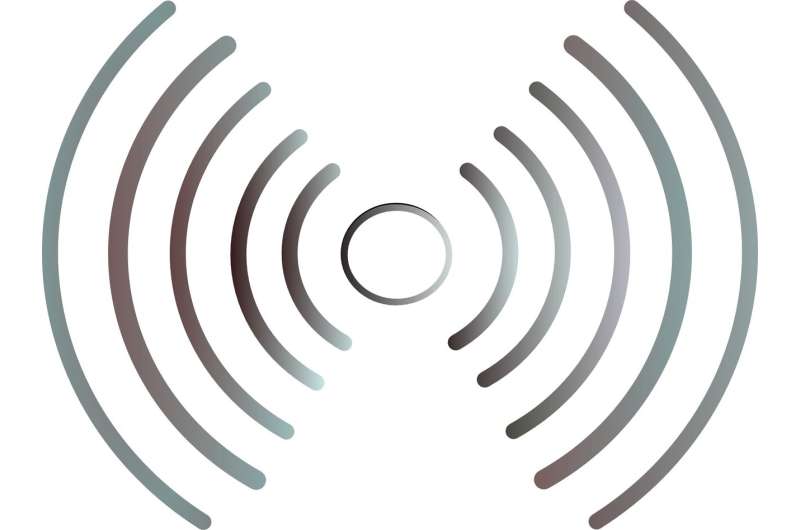During the coronavirus pandemic, radio has proven to be the medium of reference

Radio has always proved to be a medium that adapts easily to crisis situations. Throughout history, at times of major natural disasters and health emergencies, radio has played a leading role thanks to the fact that is the most universal, simplest and most accessible of media.
In the current crisis caused by covid-19, radio has again stood out as being an essential medium to stay informed, according to the study by Rodero (2020). The results indicate that radio is the medium that scores highest for its treatment of information about the pandemic.
The main goal of a recent article published in Index.comunicación by Emma Rodero, director of the UPF Media Psychology Lab at the Department of Communication, and María Blanco-Hernández, a researcher at the International University of La Rioja, was to demonstrate the influence of radio in crisis situations and describe the main initiatives that the medium is implementing relating to covid-19.
Thus, the authors have conducted a review of the state of affairs that has revealed the importance of radio in such situations. In addition, a detailed analysis of the information provided by the main domestic and international radio stations after the onset of the pandemic has allowed collating the most interesting initiatives implemented in each of them.
Increase in radio listening during the pandemic around the world
In Spain, the study by Rodero (2020) recorded an increase in radio consumption during the pandemic of almost one point. Most listeners tuned in between one and two hours a day; between 30 minutes and an hour and between two and three hours. The peak slot continued to be mornings, but due to lockdown, listening was more spread throughout the day, with increased listening especially in the afternoon and at midday. The broadcasters that experienced the highest increase were conventional general stations, while music stations suffered a decrease.
This upward trend in consumption during the pandemic has also been recorded in other countries. In the UK, Radiocentre has recorded an increase in commercial radio listening of 1 hour and 45 minutes. Broadcasters with a younger audience, like Fun Kids, have extended their broadcasting hours targeting children. The BBC puts increased consumption at 18%. In Italy, according to the Association of European Radios, the number of listeners has increased by 2.4%. In the United States there has been a 28% increase in consumption. In Chile, four out of five people heard the radio during the week, and two thirds did so daily. In Australia, listeners have heard an average of 1 hour and 46 minutes of radio a week during the pandemic and 72% of Australians are listening to as much or more radio during this crisis. In India, 82% of the population has been listening to radio during the pandemic with a 23% increase. In South Africa, a survey by the National Association of Broadcasters estimated at 36% the number of listeners who claim to be listening to more radio due to the pandemic.
Adaptation of labor relations, formats and content
Radio stations have had to adapt to the new situation with professionals working from home and schedules modified to include content on the coronavirus. As in other crises, listening has increased, and the medium is helping to alleviate the psychological effects of the pandemic.
The study reflects some specific cases of adaptation such as that of Cadena Cope, "where between just 20 and 30% of workers have attended the workplace in person," or the case of the United Kingdom "where community radio stations have innovated and improved their ingenuity presenting programs, providing entertainment and information." It also cites the case of Ràdio UNDAV (National University of Avellaneda) in Argentina, which has created a procedure manual for radio operators explaining the technical mechanisms through which to perform tasks remotely. In the field of music, one of the initiatives that has had greatest reach in Spain is the proposal by Jordi Cruz of Cadena 100. The idea was to use the song entitled Resistiré (I will resist) by Dúo Dinámico (1988) as the anthem of the pandemic, in order to raise the spirits of all citizens.
The study concludes that the technical simplicity of radio has been an ally in allowing the stations to continue broadcasting regularly. Radios worldwide have responded with all kinds of initiatives. Many have dedicated special programs or podcasts to the pandemic, some with up-to-date information, others reviewing the history or the causes of the pandemic, others reflecting the reality and its effects, and others with a clear mission to help clear up doubts about the disease.
This central role of radio is also seen in the number of initiatives that different stations around the world have organized, such as competitions and acts of solidarity to help all those affected. Once again, as has happened at other times of emergency in history, radio is playing a major role.
More information: Emma Rodero-Antón, María Blanco-Hernández (2020), " The role of radio in crisis situations. Initiatives in the coronavirus pandemic ", Index.comunicación , 10 (3), pages 193-213.
Emma Rodero (2020), "Radio: the best media in crises. Listening habits, consumption and perception of radio listeners during confinement by Covid-19", The Information Professional , 29 ( 3), 1-15.
e-Repositori-UPF: repositori.upf.edu/handle/10230/44567
Provided by Universitat Pompeu Fabra - Barcelona




















